Parents Learn How to Make Healthy Meals with WIC-Approved Items
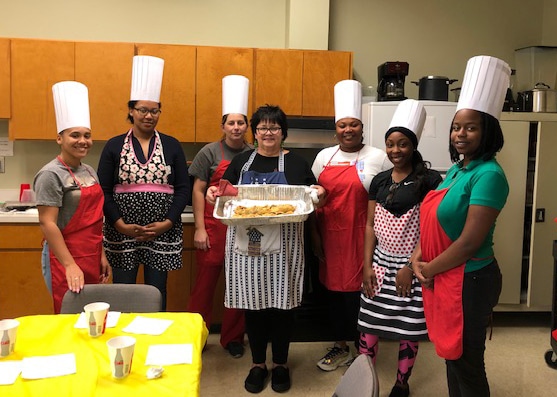
Emanuel County Family Connection Coordinator Tamra Allen (center) shows Early Head Start parents (Dacia, Sky, Whitney, Allyson, Keona, and Jasmine) how to make squash parmesan rounds.
By Diana St. Lifer
When parents learn how to prepare nutritious meals using Women, Infants and Children (WIC)-approved items, they’re more likely to use the program’s food vouchers and put healthy meals on the table. This is the intention behind Emanuel County Family Connection’s cooking classes—just one initiative through their work in Georgia Family Connection Partnership’s (GaFCP) WIC Matters Cohort, which helps ensure that eligible women are informed about, enroll in, and actively use WIC’s resources.
Parents join Coordinator Tamra Allen in the kitchen at the Emanuel County Early Learning Center to cook a wholesome meal and then take the ingredients home to recreate the dish.
Keona Rogers participated in several classes hoping to find recipes that her 4-year-old would enjoy. “It’s important to have nutritious meals,” she said. “It’s good for Khalani’s health and for her to start good eating habits at an early age. It will help her when she has a family of her own one day to know that fruits and vegetables are an important part of a good diet.”
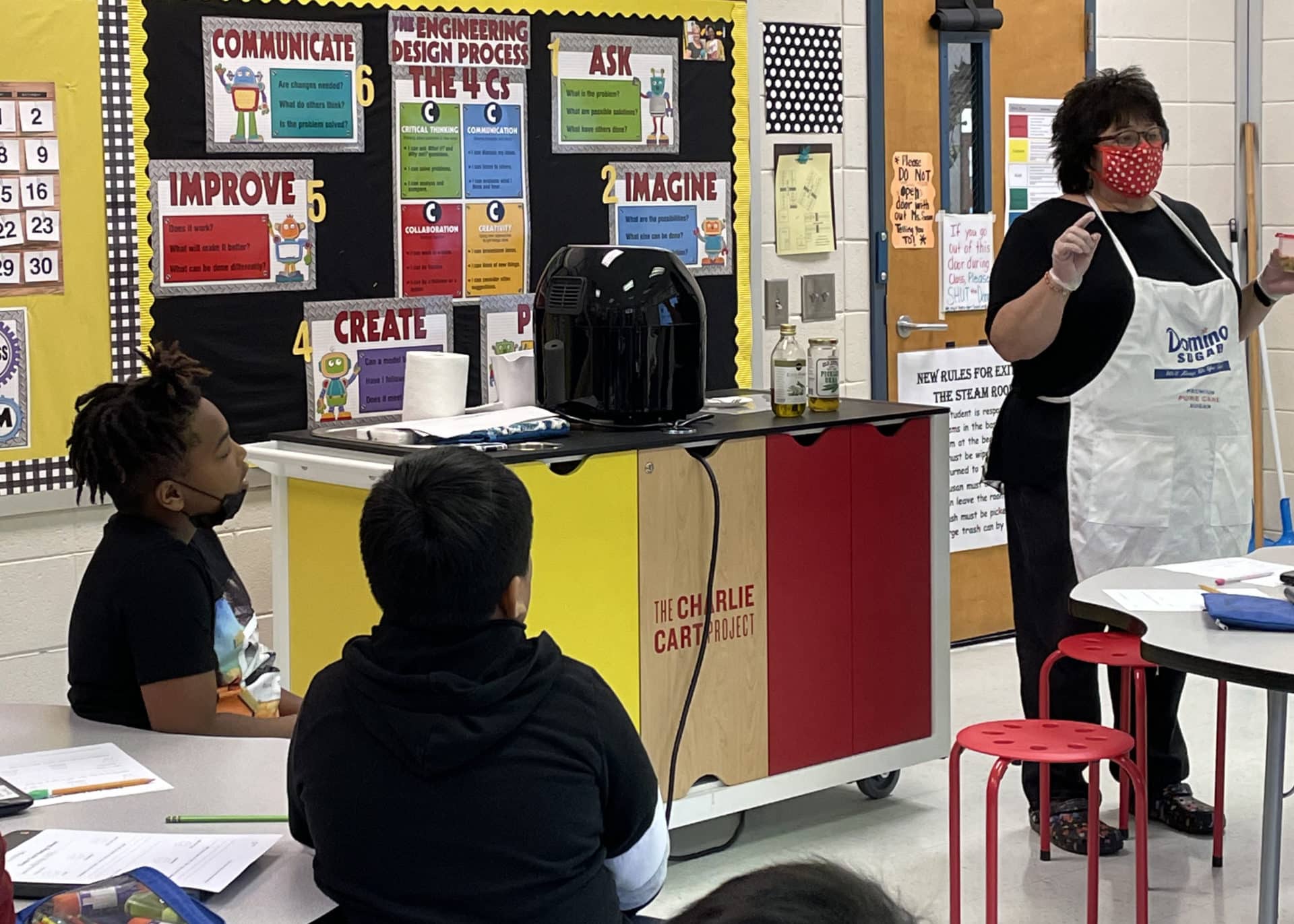
With recipes ranging from spinach and red pepper mini frittatas to taco soup and French toast, Rogers said the classes showed her how to use WIC-approved products in ways she hadn’t considered. “In one class we made healthy chips using multigrain tortillas,” she said. “I would have never thought to use a tortilla that way, but I continue to make that snack to this day.”
When the pandemic brought in-person gatherings to a halt, Allen enlisted students from the Georgia Southern dietetic intern program to record cooking demonstrations and post them online. This was one way the Collaborative continued to reach out to parents and caregivers and kept information flowing during the pandemic.
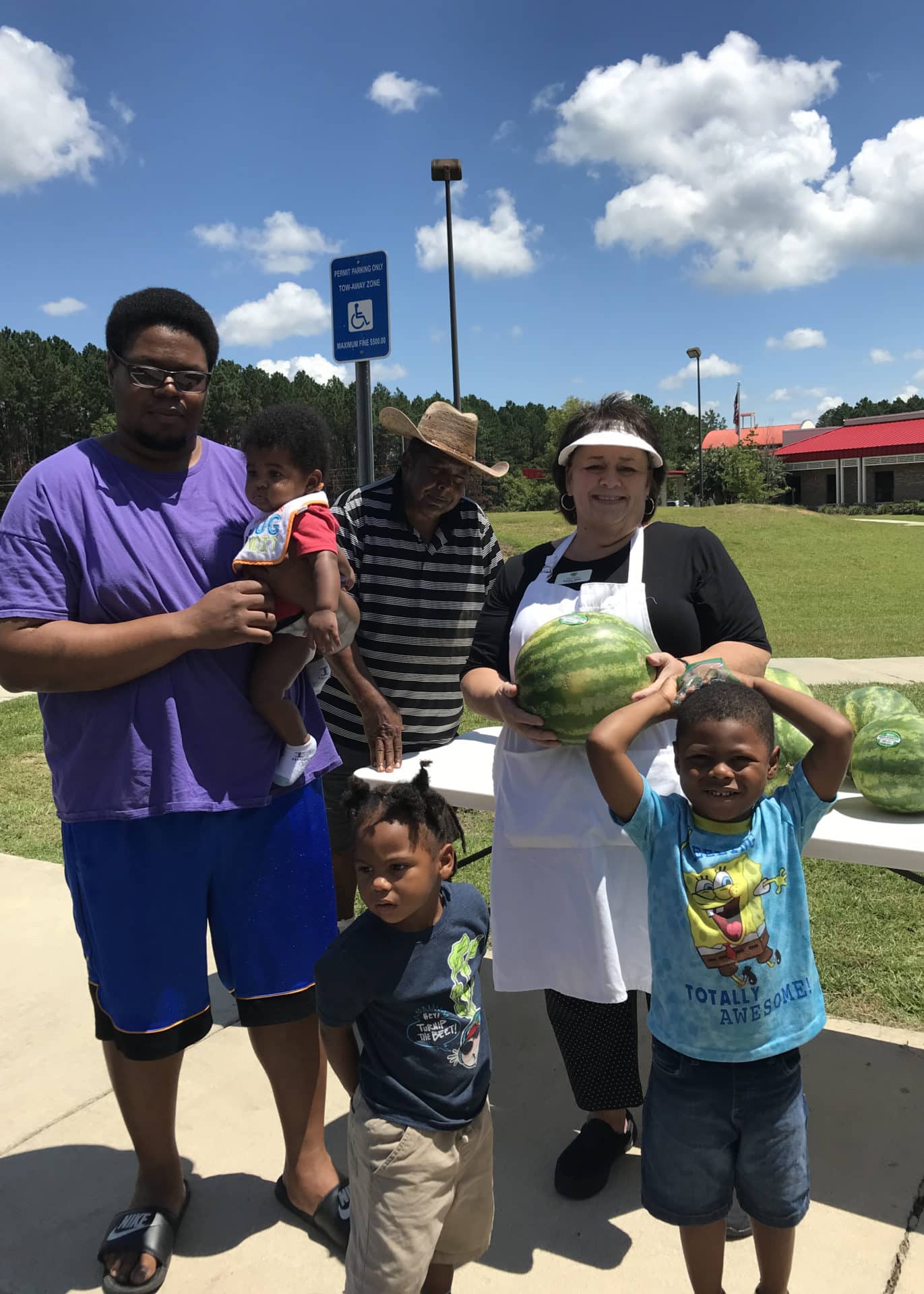
Emanuel County Family Connection Network sponsors Mini Farmers Markets for Early Head Start families to promote the use of WIC vouchers for fruits and vegetables. Pictured from left are Twayne with his nephews Kyng, Kyngston and Kyrie.
“It was a difficult time for all our communities,” said Allen. “We feel our programs through the WIC Matters Cohort have provided encouragement families need to participate in educational and social events as well as make healthy choices.”
When the Emanuel County Health Department’s Summer WIC Farmers Markets were cancelled, Allen worked with local farmer Pete Jackson to distribute fresh fruits and vegetables at the Early Learning Center and drive-through events. Allen also publicized the increase in WIC fruit and vegetable vouchers from $8 per child to $35. “We did a big campaign to make sure families knew about it,” she said.
Nearly 200 fewer children age birth to 4 in Emanuel County were enrolled in the Special Nutrition Program for WIC in 2020 than in 2015. Enrollment had steadily declined over the five-year period from 774 to 582, according to Georgia KIDS COUNT data. But Allen is hopeful that number will increase as the Collaborative enters its third year in the WIC Matters Cohort.
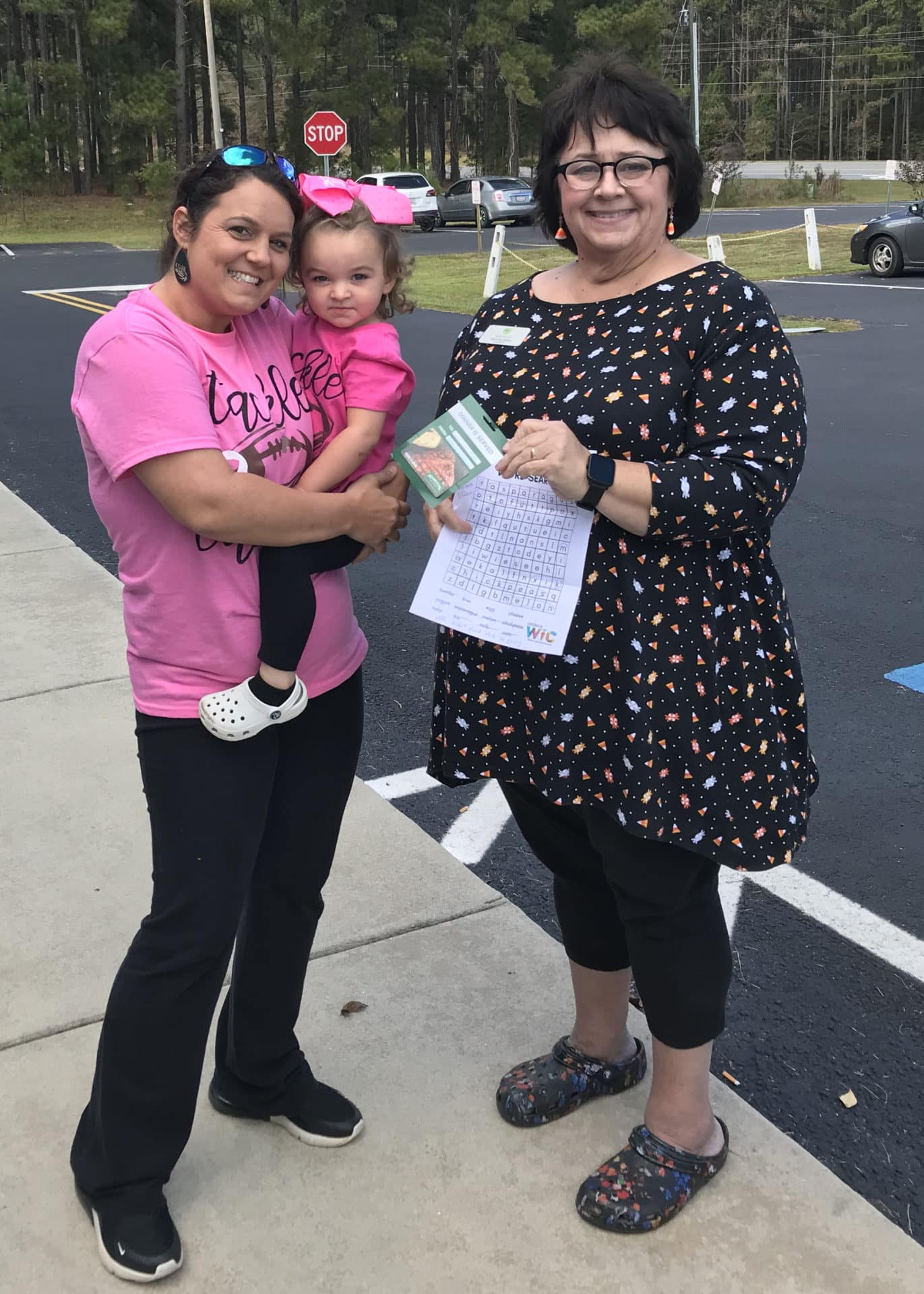
Winner the WIC word search contest Melinda with her granddaughter Everleigh and Coordinator Tamra Allen. The contest is sponsored by Emanuel County Family Connection Network for grandparents of children in Early Head Start.
From 2015 to 2019, 41.3% of Emanuel families with children had annual incomes of less than 150% of the federal poverty threshold. In 2019, 30.6% of children were living in poverty. These numbers suggest that more eligible families could be enrolled in WIC and get healthier foods on the table. But increasing enrollment is only part of the challenge.
“Parents stop using their WIC benefits for several reasons,” said Allen. “They’re unaware that children are eligible up to age 5. They find obtaining and using the food vouchers to be burdensome and confusing. And they believe being on food stamps from the Supplemental Nutrition Assistance Program (SNAP) is sufficient—or that they cannot be enrolled in both programs.”
Dispelling those myths is a priority. As part of GaFCP’s Early Childhood and Health Education Cohort, the Collaborative works closely with the Early Learning Center, which houses the Early Head Start and pre-K programs. All families with kids under 5 in both programs are eligible for WIC, giving Allen a captive audience. “We can conveniently distribute recipes and voucher-use tips to families,” she said. “We’ve also been successful in reaching parents by sending home educational materials and posting on social media.”
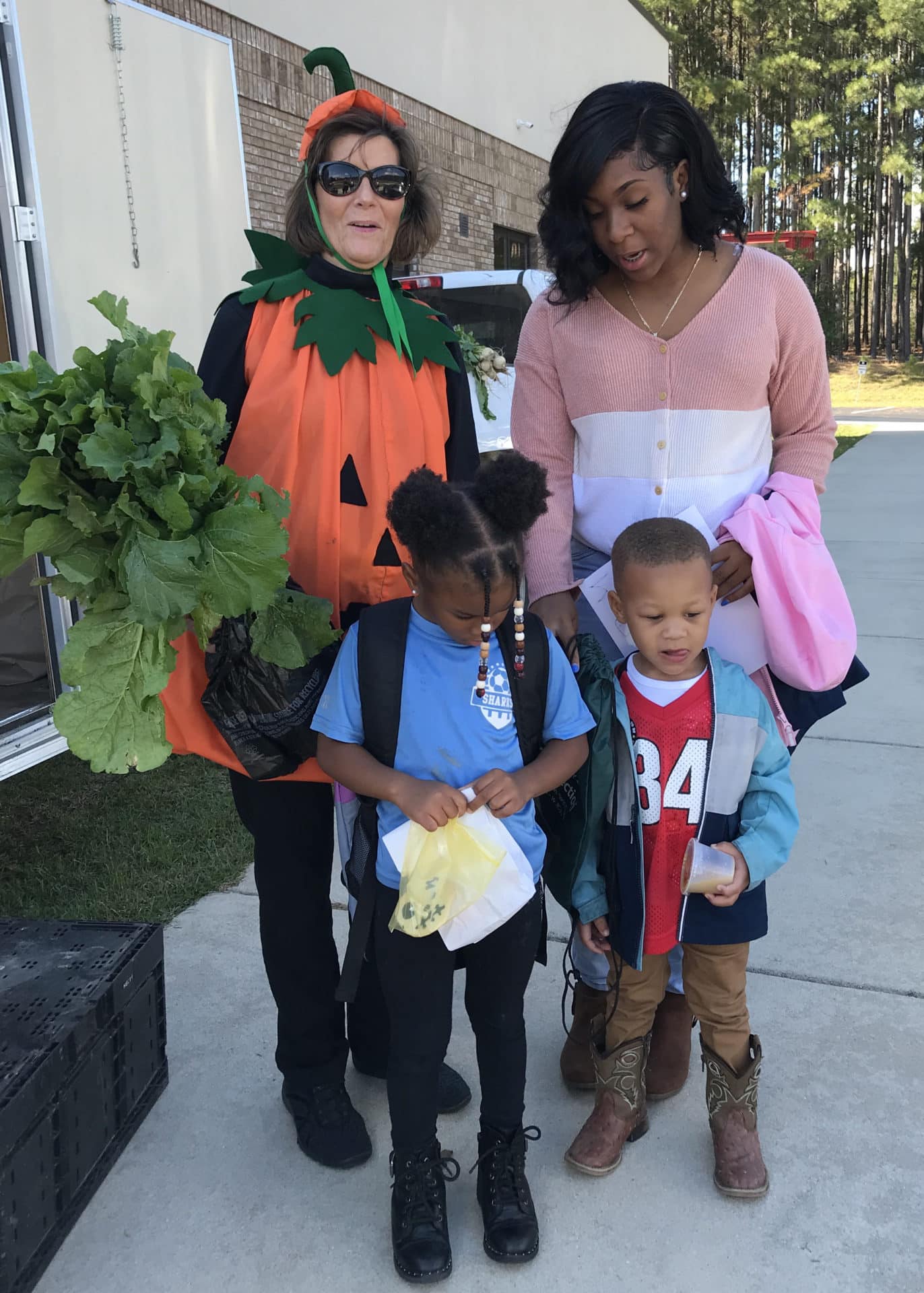
Emanuel County Family Connection Network sponsors Mini Farmers Markets for Early Head Start families to promote the use of WIC vouchers for fruits and vegetables. Pictured from left are Twayne with his nephews Kyng, Kyngston and Kyrie.
Allen also ties in both cohorts’ goals into the Center’s events. During Book-o-Ween this fall, students were treated to healthy snacks instead of sweets and enjoyed reading books with a nutritional theme.
According to Jennifer Kelly, the family health and nutrition and pregnant women’s services manager for Early Head Start, promoting a healthy lifestyle to parents goes hand in hand with the Center’s emphasis on school readiness. “Healthy children will be in school. If they’re missing school because they’re not well, it’s not preparing them for the next step,” she said. “And the children depend on their parents to be healthy as well—physically and mentally.”
The Center partners with each family to set and work toward specific objectives. “A lot of parents over the years have set nutritional goals and want to provide healthier meals for their children,” Kelly said. “When WIC Matters came into play and the cooking classes began, our parents really loved it.”
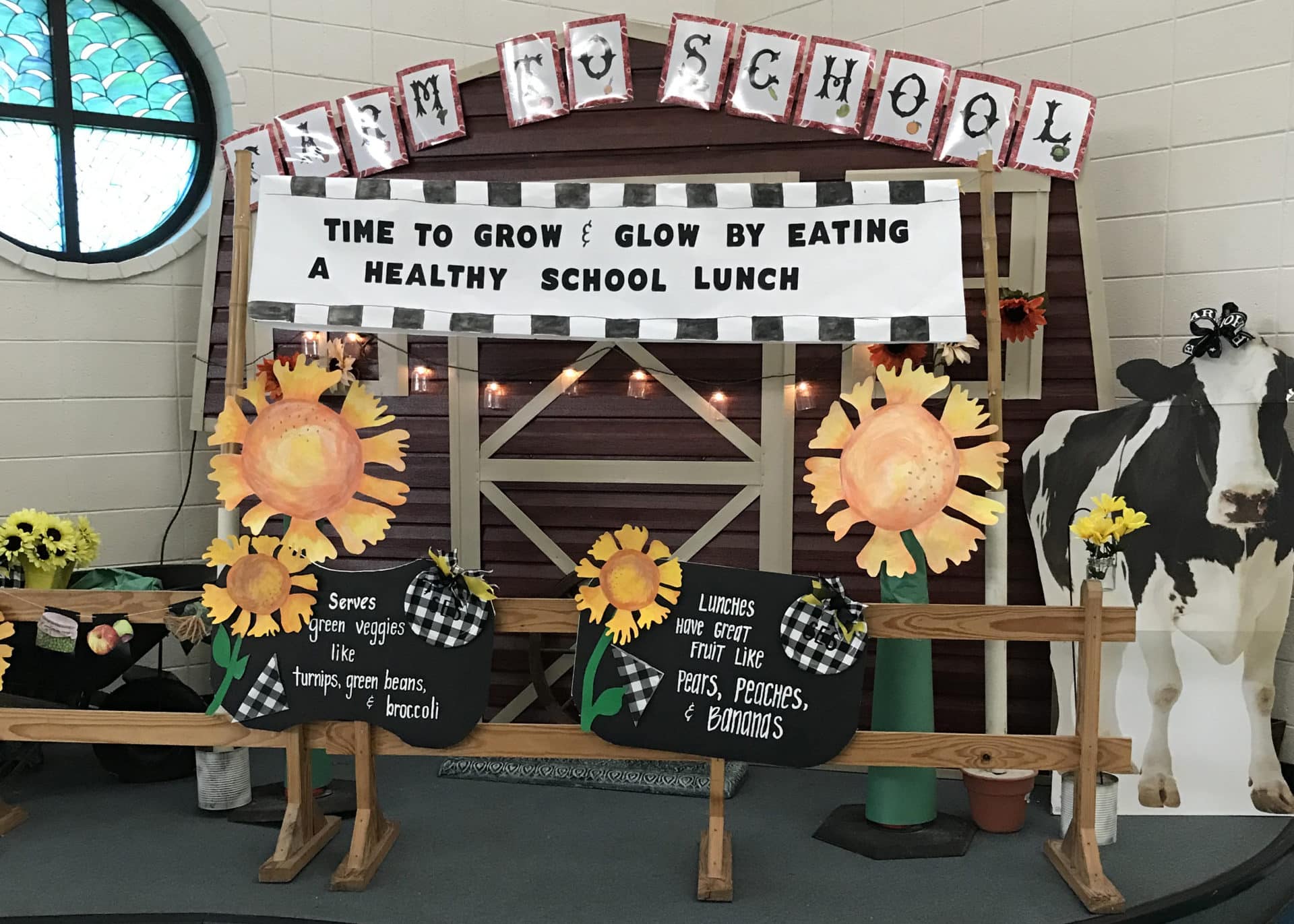
Kelly noted that a staff shortage at the health department, an anticipated change from WIC paper vouchers to a card system, confusion around WIC-eligible food items, and other obstacles within the system may contribute to lower WIC participation.
“I’m hopeful,” said Kelly. “I believe more parents reapplied for WIC during the pandemic and will continue to use their benefits for as long as they are eligible thanks to the work being done through the WIC Matters Cohort.”
Contact:
Krystin Dean
GaFCP Communications Specialist
404-739-0043
krystin@gafcp.org
Follow us on Twitter: @gafcpnews
Connect with us on Facebook.
Georgia Family Connection Partnership (GaFCP) is a public-private partnership created by the State of Georgia and investors from the private sector to assist communities in addressing the serious challenges facing children and families. GaFCP also serves as a resource to state agencies across Georgia that work to improve the conditions of children and families. Georgia KIDS COUNT provides policymakers and citizens with current data they need to make informed decisions regarding priorities, services, and resources that impact Georgia’s children, youth, families, and communities.
